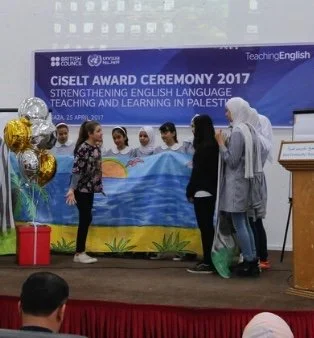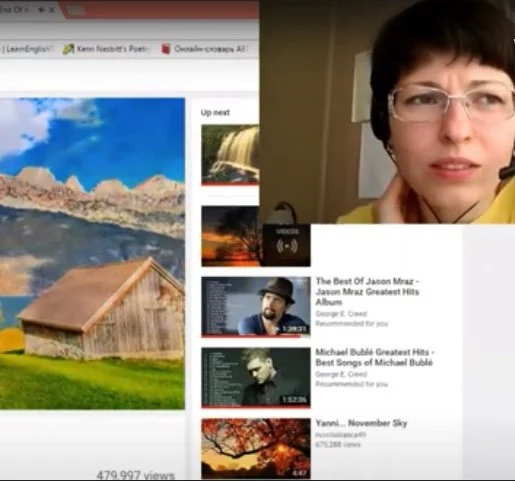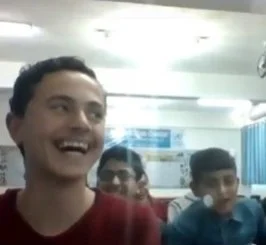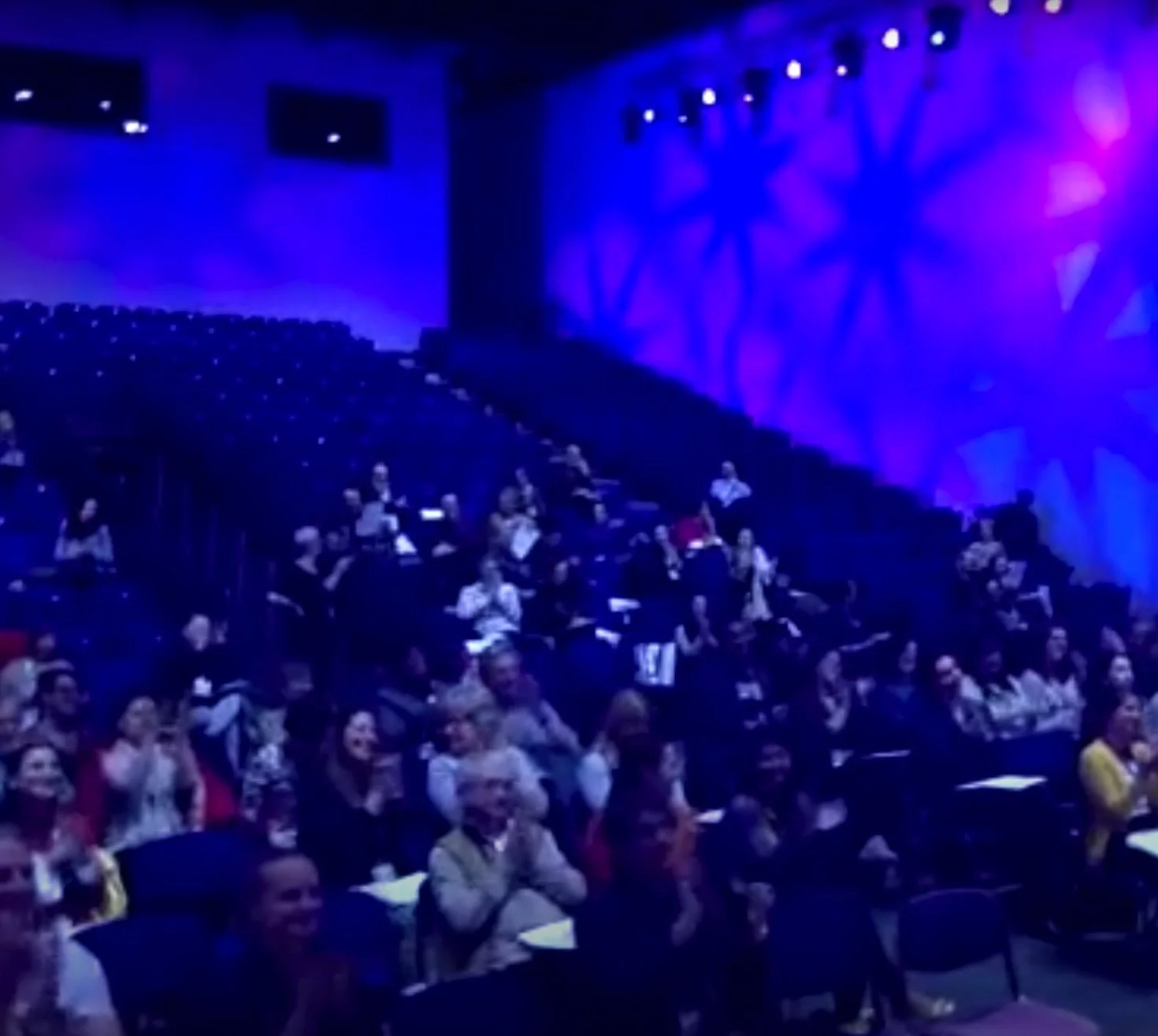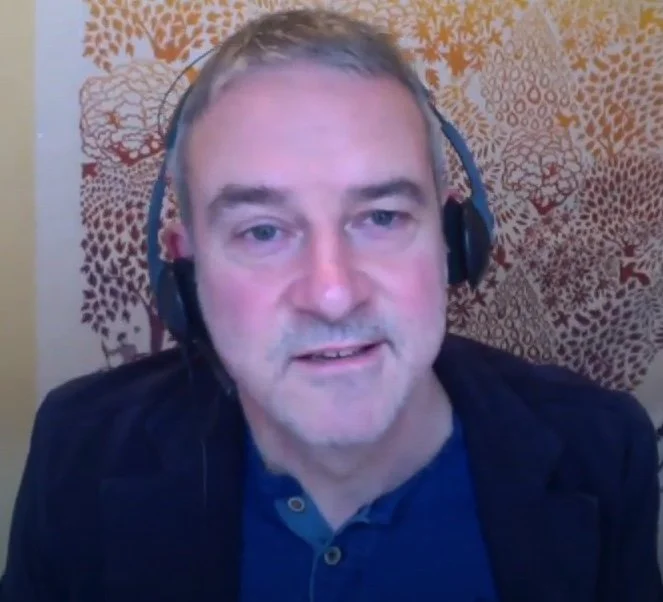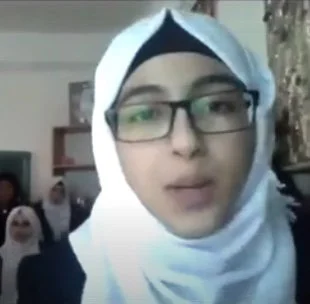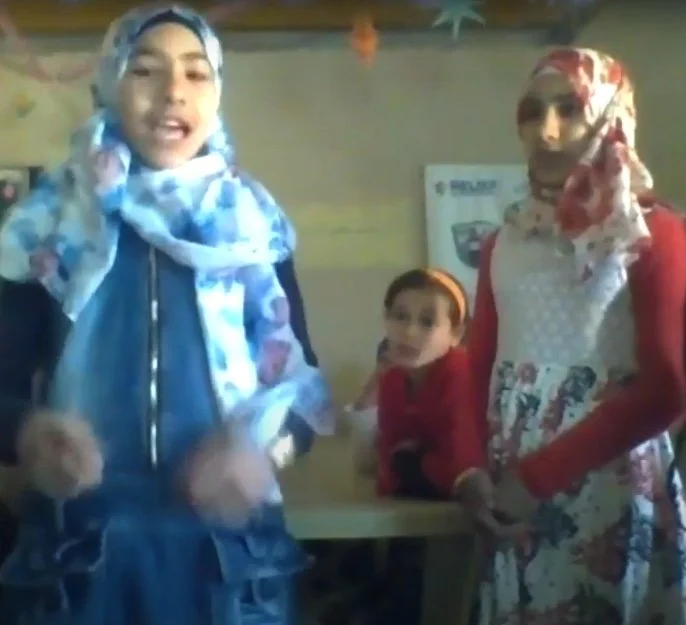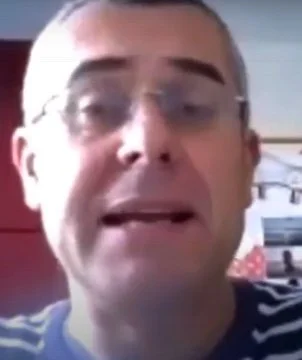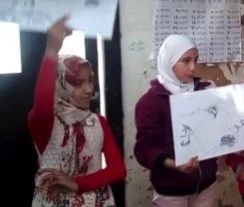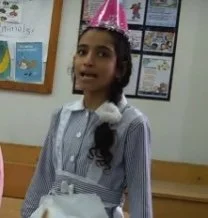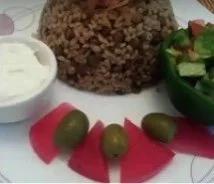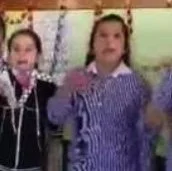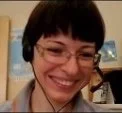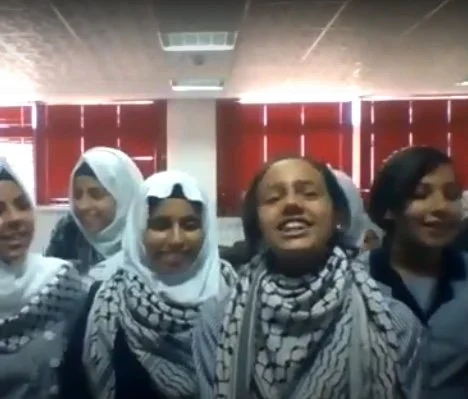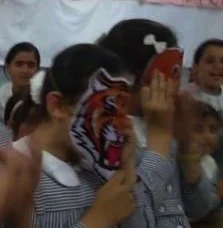After working online with so many different groups of children and their teachers in Gaza over the past two years, it was such a joy to meet some of them face to face last week when I finally managed to get there in person. The British Council and UNRWA organised a wonderful conference where Scott Thornbury and I both gave plenary workshops for the 250 Gazan teachers of English who attended.
Read MoreHere's a post by Sahar Salha in Gaza and Alex Guzik in Russia, which shows the wonderful way that teachers are working together to produce very effective classes for children through the Hands Up Project.
Read MoreThe other day I found myself suddenly having to cover an online session in Gaza because I'd forgotten that one of our volunteers wasn't able to make it. I didn't have any specific plans so I began by asking the boys what they would like to do in the session
Read MoreAnyone who came to my talk about drama at IATEFL, Glasgow on Tuesday will have seen two groups of children performing two traditional Palestinian stories (Jbene and The farmer who followed his dream) live and remotely from the UNRWA field office in Gaza city.
Read MoreI've always liked Total Physical Response (TPR) as as an approach to language learning. It's a safe and relatively unchallenging activity for learners, but at the same time it provides them with lots of meaningful and highly memorable language exposure
Read MoreThis week another Hands up project volunteer, SIBEL KARATAŞ, a teacher of Turkish and English based in Berlin writes about her experiences working with a large girls group in Hebron, Occupied Palestine…
Read MoreThis week we have something rather special - a guest post from Jane Willis. Jane has been a supporter of the Hands Up Project for a long time and is on the advisory panel - offering us support in bringing task based learning into the work that we do. Over to you Jane....
Read MoreI’m very proud of what the Hands Up Project has achieved in the last 2 years. We now have around 15 different groups of children in Palestine, Jordan and Pakistan (some quite small and some with up to 80 participants!) and we're connecting to them each week to do online sessions.
Read MoreIn 1990, when I first took some training to be a teacher of English as a foreign language, we were strongly encouraged to use the PPP (Presentation, Practice, Production) framework for planning lessons. Here's a reminder of how it works...
Read MoreI've always been very keen on information gap activities; the kind of thing where students work in pairs and where one student has one set of information and the other student has a different set and they have to communicate to somehow pool what they know. The classic example of this is 'Spot the differences'.
Read MoreWe have another guest post this week - this time from not just one teacher but two! Alexandra Guzik, teaches English at the Follow me to English school in Krasnodar, Russia and Sahar Salha teaches at the Elementary co-ed “A” UNRWA school in Beit Hanoun, Gaza. This post is about a really nice cross cultural learning experience that they set up through the Hands Up Project.
Read MoreA few years ago I attended a really interesting talk by Jane Willis at an IATEFL conference somewhere. The talk was about using task based learning in challenging circumstances, and there was a point when one of the teachers in the audience was telling everyone about her particular challenge of trying to get learners to use English (rather than mother tongue) to do group work tasks in the large classes of low level learners that she taught.
Read MoreThis week we have a guest post from Henritte Sudah, who teaches English at Zababdeh girls secondary school, Jenin, Palestine.
Read MoreOver the past two months, along with doing lots of online sessions myself, I've been running several series of online training sessions with dedicated teachers in many different places around the world, who have given up their time to volunteer with the Hands Up Project.
Read MoreI've been so busy lately I haven't had much time for blogging, but this week we've got something special - a guest post from Amal, an English teacher who works with teenagers at the UNRWA school in the Khan Younis refugee camp, Gaza.
Read MoreLast week we arranged a live link up between her students and a group of grade 12 students at a secondary school here in the UK. Here’s Amal’s post about what happened…..
Read MoreDespite all the hype about learning styles in recent years, it's a well known fact, backed up by research, that our ability to remember images outperforms our ability to remember other forms of data, such as written words, sounds, or smells. In one study, cited in Medina (2008), people were shown 2500 different images - each one for just 10 seconds.
Read MoreTeacher's aren't doctors but sometimes we're made to feel like we are :-) I was at a conference recently and a teacher came up to me with a wry smile on her face. 'I have a problem,' she said. 'You know that chant you did in your workshop last year? It goes like this ...Juha! Juha! What are you going to do? The cat came home and ate the meat and nothing's left for you!
Read MoreThe difference between theatre and classroom drama is that in theatre everything is contrived so that the audience gets the kicks. In the classroom, the participants get the kicks.'So how can second language learners benefit from performing in a play?
Read More
